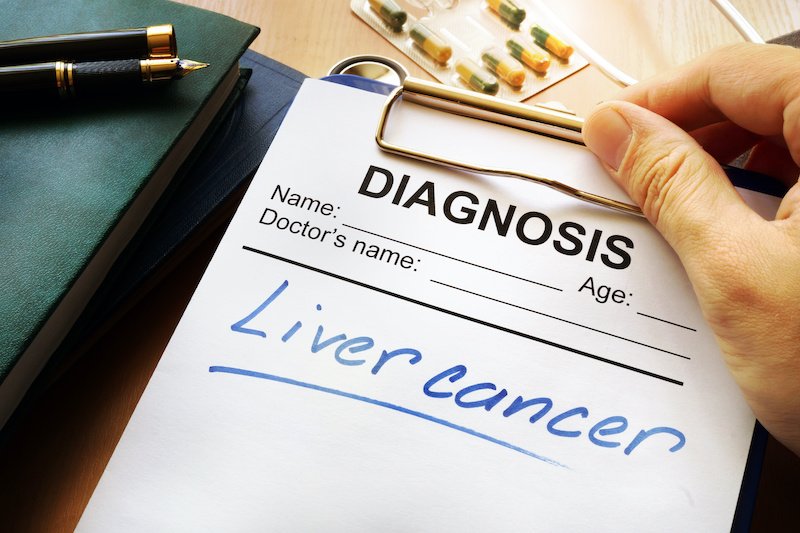A Guide to Liver Cancer Diagnosis

For National Liver Cancer Awareness Month in October, we are bringing attention to the different methods that can be used for liver cancer diagnosis. Blood tests, imaging tests, and biopsies are all ways liver cancer can be diagnosed.
Blood Tests
At the same time as a physical examination, a physician will likely order a blood test to look for a substance called AFP. In the United States, AFP is found in elevated levels in the blood of about 50% to 70% of people who have Hepatocellular carcinoma (HCC). The patient’s blood will also be tested for hepatitis B or C. Other blood tests can show how well the liver is working.
Imaging tests
Imaging tests use x-rays, magnetic fields, or sound waves to create pictures of the inside of your body. Imaging tests may be done for a number of reasons both before and after a diagnosis of liver cancer, including:
- To help find suspicious areas that might be cancer
- To help a physician guide a biopsy needle into a suspicious area to take a sample
- To learn how far cancer might have spread
- To help guide certain treatments in the liver
- To help determine if treatment is working
- To look for possible signs of cancer coming back after treatment
There are several types of imaging tests used for liver cancer diagnosis:
- Ultrasound: Ultrasound is often the first test used to look at the liver. It uses sound waves to create an image on a computer screen. This test can show tumors growing in the liver, which then can be tested for cancer if needed.
- Computed tomography (CT): The CT scan is an x-ray test that makes detailed images of your body. A CT scan of the abdomen can help find many types of liver tumors. It can give specific information about the size, shape, and location of any tumors in the liver or elsewhere in the abdomen, as well as nearby blood vessels.
- Magnetic resonance imaging (MRI): Like CT scans, MRI scans provide detailed images of soft tissues in the body. But MRI scans use radio waves and strong magnets instead of x-rays. MRI scans can be very helpful in looking at liver tumors. Sometimes they can tell a benign tumor from a malignant one. They can also be used to look at blood vessels in and around the liver to see any blockages and can help show if liver cancer has spread to other parts of the body.
- Angiography: An angiogram is an x-ray test that looks at blood vessels. A contrast medium, or a dye, injected into an artery to outline blood vessels while x-ray images are taken. Angiography can be used to show the arteries that supply blood to liver cancer, which can help doctors decide if cancer can be removed and to help plan the operation.
Biopsy
A liver biopsy is the removal of a sample of tissue to see if it is cancer. Sometimes, the only way to be sure that liver cancer is present is to take a biopsy and look at it in the pathology lab. But in some cases, doctors can be fairly certain that a person has liver cancer based on the results of imaging tests such as CT and MRI scans. In these cases, a biopsy may not be needed.
If a biopsy is needed, it can be done in several ways:
- Needle biopsy: A hollow needle is placed through the skin in the abdomen and into the liver. The skin is first numbed with local anesthesia before the needle is placed. This type of biopsy is typically done with the help of an ultrasound or CT scan to guide the needle.
- Laparoscopic biopsy: Biopsy specimens can also be taken during laparoscopy. This lets the doctor see the surface of the liver and take samples of abnormal-appearing areas.
- Surgical biopsy: An incisional biopsy (removing a piece of the tumor) or an excisional biopsy (removing the entire tumor and some surrounding normal liver tissue) can be done with surgery.
Contact a Gastroenterologist
If you are struggling with the symptoms of liver cancer, you should seek medical attention from a GI specialist for evaluation and treatment. The team at Birmingham Gastroenterology has decades of experience treating diseases and disorders in all parts of the digestive system. This includes helping with a liver cancer diagnosis. To make an appointment to discuss your symptoms and the best diet for IBS, call us at (205) 271-8000.

